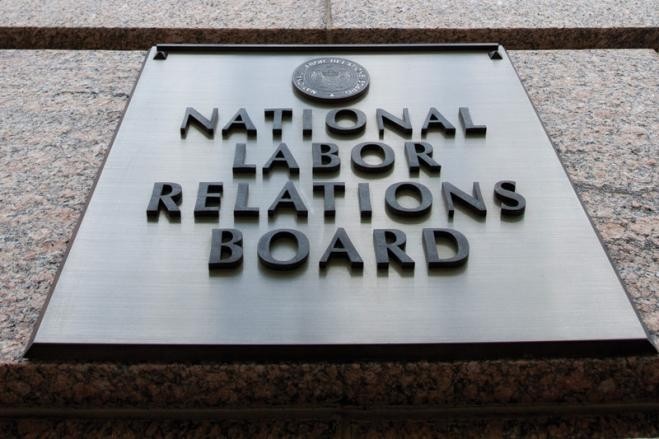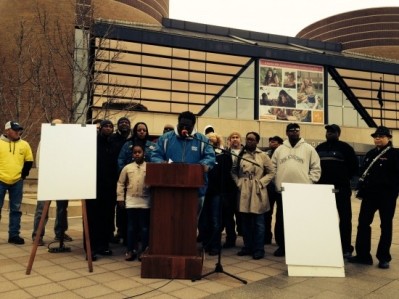Kellogg v BCTGM
NLRB issues complaint against Kellogg over Memphis lockout

The validation of the federal charges, alleging Kellogg has violated the National Labor Relations Act, means the case will now be heard before the NLRB’s administrative judge. The hearing is scheduled for May 5, 2014, at the NLRB regional office in Memphis.
The NLRB only issues a complaint if its investigation has found sufficient evidence to support the charge and a settlement between the parties cannot be reached.
Kellogg has maintained its lockout is within the law and that employment terms fall under a local, supplemental contract that expired on October 20, 2013 and should therefore be negotiated. The BCTGM says Kellogg acted unlawfully and these terms fall under a master contract that cannot be negotiated until expiry in October 2015.
National Labor Relations Act, 1935
Congress enacted the National Labor Relations Act ("NLRA") in 1935 to protect the rights of employees and employers, to encourage collective bargaining, and to curtail certain private sector labor and management practices, which can harm the general welfare of workers, businesses and the U.S. economy.
“We look forward to presenting our considerable evidence”
In a statement issued yesterday, March 27, Kellogg acknowledged the decision made by Region 15 of the NLRB to formally litigate the charges against the company.
However, it stood by its lockout action and said: “We look forward to presenting our considerable evidence on this issue.”
“Disingenuous and misleading public relations campaign”
The BCTGM’s international union president David B. Durkee welcomed the NLRB’s ruling and said it was the, “first loud blow for justice”.
“Today’s action by the board’s general counsel is the first step in validating all that the BCTGM and our locked out members have consistently said since the beginning of this tragic lock out – that the company violated the law by demanding to negotiate on subjects that are not legally proper for Memphis negotiations,” he said in a statement issued on March 27.
He said the decision exposed Kellogg’s, “disingenuous and misleading public relations campaign” that has been waged for the past five months.
“As today’s complaint alleges, Kellogg had broken the very law that governs the negotiations the company wanted the local union to resume,” he said.
NLRB statement
In a statement, the NLRB gave further details on the nature of the complaint issued against Kellogg.
It said: "The complaint alleges that Kellogg Company violated the NLRA by insisting to impasse on bargaining proposals that would constitute midterm modifications to the wage and benefit provisions of the Master Agreement between Kellogg and the Union, by locking out approximately 225 Memphis unit employees in furtherance of its bad-faith bargaining position, and by failing to provide requested information that would assist the Union in its representational capacity and in assessing Kellogg’s bargaining proposals."
The board said that under the National Labor Relations Act, employers had an "obligation to bargain in good faith with respect to wages, hours and other terms and conditions of employment".
It added: "The law requires that, when a collective-bargaining agreement (CBA) is in effect and an employer seeks to modify the terms and conditions contained in the CBA, the employer must obtain the union’s consent before implementing such changes."
Contract wars: A case of semantics?
Speaking to BakeryandSnacks.com yesterday, ahead of the NLRB’s decision, BCTGM representative Ron Baker said the issue stemmed from Kellogg’s use of the term ‘casuals’.
“They’re calling them casuals, but they’re not casuals. Kellogg wants these people to come in and do full-time jobs for less money. They’re using the term casual, but only to suit them – these are not casual contracts,” he said.
Baker said the BCTGM had an agreement with Kellogg for up to 30% use of casuals at the Memphis plant, but explained that by casuals, this meant workers coming in to temporarily cover vacations or extended leave of full-time staff.
“Then they say casual, they want these folks to come in and hold regular, full-time jobs, so when you think about that – regular, full-time jobs are covered under the master contract.”
He said that if Kellogg wanted to address changes to use of casual labor, they can do so, but in October 2015 when the master contract had expired.
What's next?
Both Kellogg and the BCTGM can agree to settle at any point, and can also appeal any decision made by the NLRB’s administrative judge. If an appeal is made, the case will be brought to the NLRB’s judge in Washington DC. If the decision made by this judge is further appealed, the case will end up in a federal court and ultimately onto the US Supreme Court.
For more insight into the legal details of the Kellogg v BCTGM contract issue, CLICK HERE.
Ahead of the NLRB's decision, we spoke to Kellogg and the BCTGM to find out what their arguments were. CLICK HERE for full coverage.







